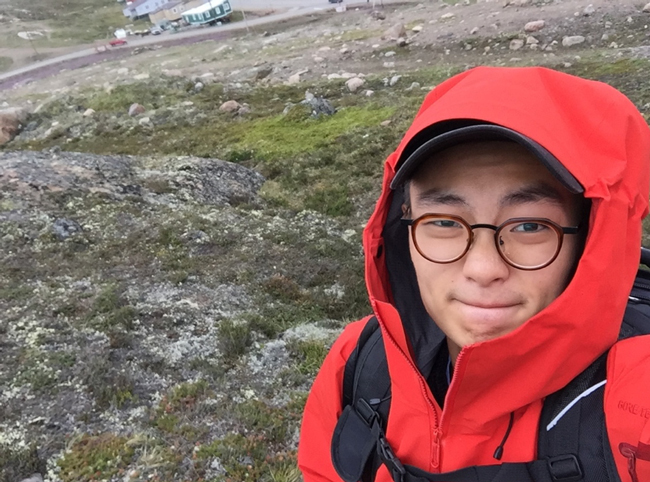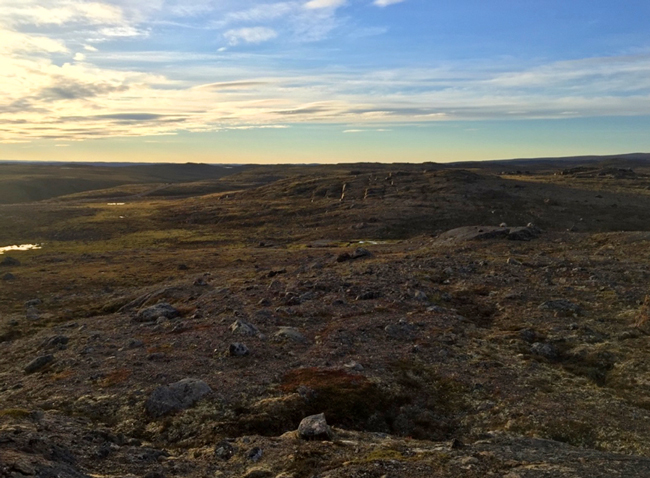
By Harry Kim
[Editor’s note: This piece first appeared in the Perspectives on Global Health Blog]
Through the McGill Global Health Scholars program, I embarked on a four-week mission to Iqaluit and Kuujjuaq, the largest towns of the regions of Nunavut and Nunavik, respectively. The research project, led by Dr. Cedric Yansouni, involved the investigation of enteric infections among young children in the Arctic. Health authorities recently recognized the widespread prevalence of the diarrheal disease cryptosporidiosis in the Canadian Arctic. The disease, spread by the parasite Cryptosporidium, raised cause for concern, as it is associated with impaired growth and development in children. Arctic communities are already facing a plethora of problems including food insecurity, home overcrowding, etc. Thus, the investigation behind the etiology and frequency of diarrheal diseases would elucidate the importance in defining future public health policies.
Specifically, I was tasked in two ways: test stool samples in Iqaluit using a novel molecular biology diagnostic tool, and acquire new stool samples in daycares from children residing in Kuujjuaq.
Iqaluit
Almost everything is flat here in the Arctic. The houses are flat, the land is flat, the rocks are flat, and the roads are flat. The air is crisp and clear, and the cloudless sky extends for miles in every direction. With no trees to provide shelter from the sun, it feels as though its rays cover every inch of the ground. I was told that I was lucky for the sunny days and cloudless skies, as the normal summer weather would call for fogs that cling to the ground all day long.
When the weather’s so nice, why not go for a hike?
I hop onto the Road to Nowhere that leads away from the town, and soon enough, all I can see is nothingness in every direction – not a sight of life on the horizon. I hike over rocky hills decorated with patches of plush moss, and make my way around small ponds of melted glacier water. The moss is deceiving: I sink into a patch of melted permafrost, pretending to be a rock, and wet my not-so-waterproof boots. I trot on, wet socks and all, determined to reach the end of the Road. Unfortunately, the hike does not satisfy my penchant for novelties; at its conclusion, there is no sign that denotes “THE END OF THE ROAD TO NOWHERE.” It had been travelled down many times, as many hikers before me took the liberty to steal the sign and claim their self-satisfaction.
All that remained at the end were footprints from the past, embedded on a road that, as promised, led to nowhere.

True homesickness appeared in front of me in the form of shawarma. A rather unlikely place to harbor the jewels of the Mediterranean, Iqaluit’s Yummy Shawarma was the demonstration of Iqaluit as a “big town”. After all, Iqaluit is the capital of Nunavut, the largest northern community, home to around 8000 shawarma-seekers. Far from Crescent Street as I was, it was the familiarity of a dimly-lit shawarma joint and the pungent aroma of the garlic sauce that reminded me most of Montreal. Hairy forearms were a necessity to work the sandwich-wrapping-station, this place not an exception. Garlic sauce transcends latitudes. Alhamdulillah.
Even though Iqaluit is a large town, by northern standards, Wesley explains that everyone learns to adjust to the slower pace of life in the North. Wesley, laboratory technician at the Qikqitani General Hospital, receives patient samples from all Nunavut communities. At the hospital, since facilities and staff are limited, you learn to improvise with what you have: “Iqaluit is so far north that shipments can be delayed by weeks. We’ve had to reorder so many patient tests throughout the years. I mean in general, there’s no Wifi at most places, and the food is crazy expensive, so you have to adjust your expectations.” But life here in the North is still great, for what it is.

 At night, there’s not much to do but to sit at the bar and eavesdrop on locals’ conversations. After all, a small town is a small town.“There’s a wedding at the church on Saturday, they’re so cute together.” A couple next to me gossips about the newlyweds over a glass of wine. On the other side of the bar, a bachelorette party orders shots.
At night, there’s not much to do but to sit at the bar and eavesdrop on locals’ conversations. After all, a small town is a small town.“There’s a wedding at the church on Saturday, they’re so cute together.” A couple next to me gossips about the newlyweds over a glass of wine. On the other side of the bar, a bachelorette party orders shots.A man dressed head-to-toe in white, donning a three-piece suit and white loafers, sits on the barstool next to me and spills his life story, about how he ended up in Iqaluit twelve years ago, when he originally came up for a three-month contract as a substitute teacher. An Inuk lady interjects to tap my back, and holds out a couple seal-skin wallets in her hands. I say I have no cash, and she walks away with a shrug.
And so, life goes on in the North, one can of Budweiser at a time.
Kuujjuaq
A poopy end to a poopy day: we let the “marée brune” flow inside the biosafety hood of the Ungava Tulattavik Health Centre laboratory. A wave of poopy diapers welcomed me to the True North, the official place of mind and sentimental home of the Canadian people, or so indicates Margret Atwood.
During the day, I run around at the two daycare centers collecting soiled diapers, and measuring weights and heights of children. The evenings are spent processing the collected poop, an act carried out in silent solitude.
The lab staff and local doctors are all accommodating, and try to make me feel welcome in this foreign-yet-still-in-Quebec town. I am eventually recognized as the “Poo guy.”
“Et alors, t’as-tu collecté du caca aujourd’hui? (So, did you collect any good poop today?)“ They ask. I remind myself that the Southerners in Kuujjuaq all speak French (Come on, we’re in Quebec here), but the local Inuit speak English.
But no, today was a horrible day, full of rejections and shy kids who never poop at the daycare, only at home. But my supervisor says, “This is a game of ‘hurry up and wait’. Part of the success is rejection, so I guess you were successful.”
And so, I pray to the stars for more poop.
At night, Riita and Andrew from the band The Jerry Cans invite me into their hotel suite, for a quick jam session with Peter. Although we were strangers not too long ago, after hours of singing Inuktitut folk songs, it was already 3 a.m., with much poop to collect in the morning. Peter says he’ll try to get another gig at the “Lounge” before I leave, so I can hear him play one last time.
“Nakurmik,” (thank you) I say, and leave the suite to get some sleep.
True North
Sit alone at the bar
Two cuties crack Molsons with a spoon
But think of grilling fake hot dogs
The blue jays endorsed
The wolf on the wall only stares back
But the True North is silent
Not just quiet but so bright
It blinds the cigarette embers deep
Jays jersey with Expos cap
Jackie’s rolling in his grave
Oh well
Sorry Canadians are we
But how we crave the not-aloneness
The break from small towns
Bartenders are cute anywhere you go
Anyway
Even the True North
Barren, not in bartenders
But our limbs
Too long for our tiny heads
Reach far failing to grasp
That
Taxidermied animals
They’re just that
Nothing more
Harry Kim is an undergraduate student in Microbiology and Immunology, doing his Honours research on the development of a vaccine against cryptosporidiosis. Last summer, he participated in the McGill Global Health Scholars program, and went to the Arctic on a public health study. Coincidentally, it involved the surveillance of the same parasitic disease, cryptosporidiosis, which has recently been recognized in Northern communities. Outside of his research initiatives, he is also a part time beekeeper.
October 20, 2017
